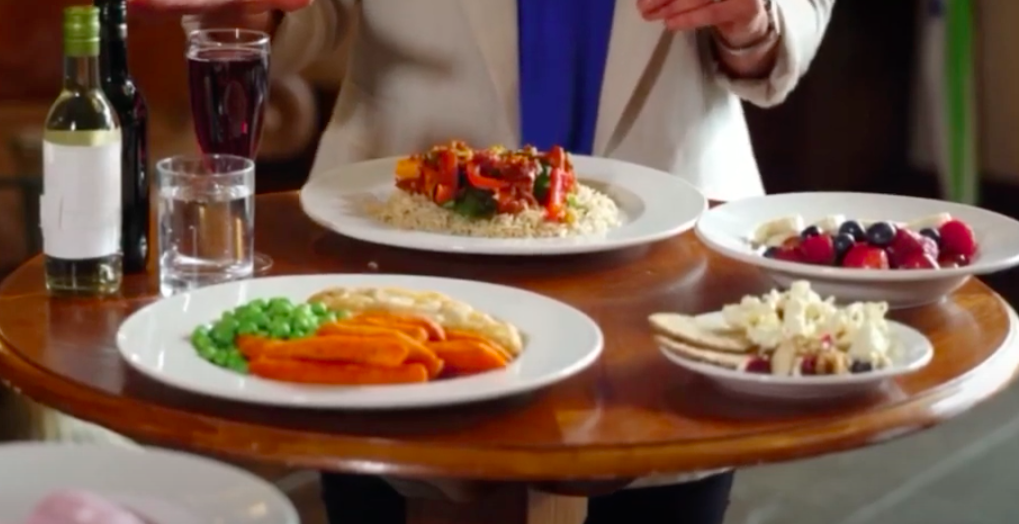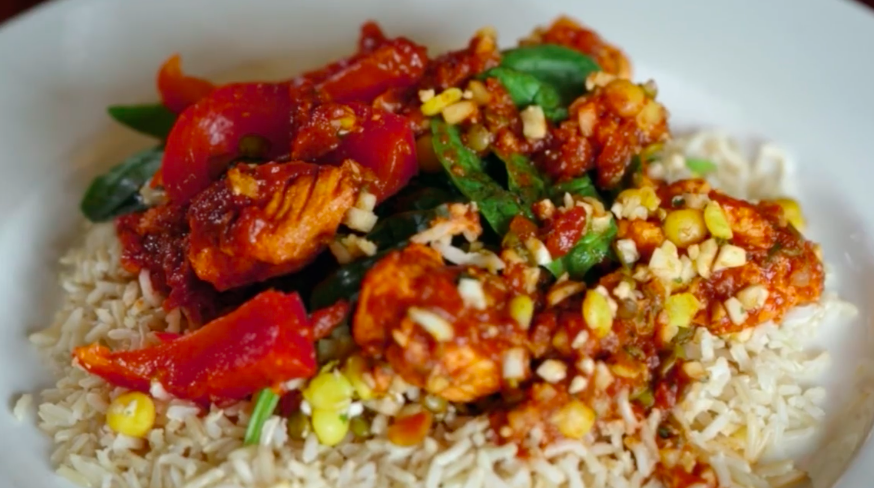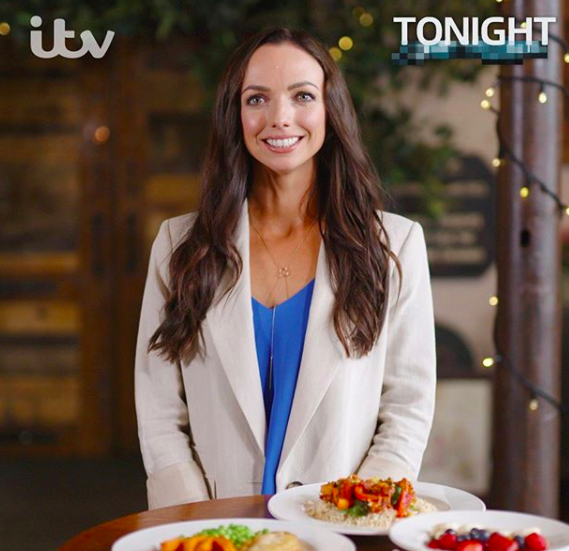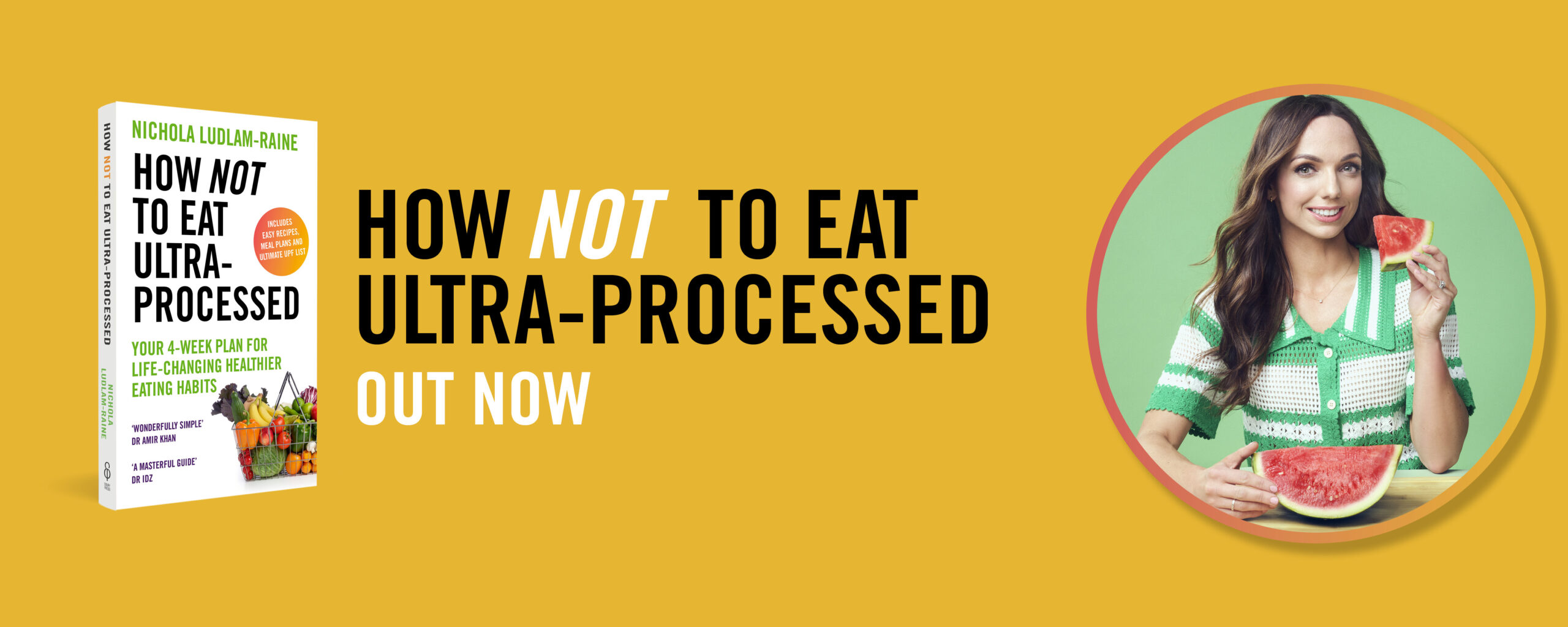
Earlier this month, I was delighted to be invited on to the ITV Tonight programme to meet a family, whose eating habits and lifestyle had changed during the lockdown period, and discuss some tips and simple swaps to help create long-term healthier habits.
If you didn’t manage to catch it, do have a watch of the video clip below (or watch it back on BBC iplayer!) and do let me know if you resonate with any of the discussions we had (on and off camera!).
First of all, it’s important for me to say that there should be no shame if you’re reading this and feeling like the lockdown period has negatively impacted your diet and lifestyle. Stress and anxiety are very common triggers for a change in eating habits, and many of us will naturally turn to food as a source of comfort – which is not always a bad thing. However, if these short-term dietary and lifestyle changes, such as eating more food that’s higher in sugar or saturated fat and reducing physical activity become long-term habits, then it can be harder and harder to break the cycle, causing a knock on affect on our physical and mental health.
Making small, instead of drastic changes is a sensible approach to creating long-term healthy habits that are sustainable, without causing any feelings of restriction. I do hope you find these tips useful!
SIMPLE WAYS TO IMPROVE YOUR HEALTH
- Start a ???? ????? – This encourages mindful eating. Write down what & where you ate, why you ate and how you felt before/after. Try to eat without distractions such as the T.V or social media!
- ??????? ????? & ???????? ?????? – For a balanced plate, aim to fill 1/3 of your plate with a source of protein (whether that’s animal or plant-based), 1/3 with carbohydrates – try to aim for a ‘brown’ version at least 80% of the time if possible for more fibre! And lastly, fill 1/3 (or more) of your plate with veggies – the more varied the better when it comes to obtaining a wide range of vitamins & minerals!
- ????? – It’s recommended to aim for 7-8 hours/night for good health. Limited or poor quality sleep can increase tiredness and impact our appetite the following day (as our ‘hunger’ hormone increases!) meaning you may be more likely to over-eat.
- ?????? – As well as impacting our mental health, prolonged stress can negatively impact our physical health by causing a rise in blood pressure and blood glucose levels, too. Meditation, yoga or even a short walk can be an effective way for some to reduce this.
- ???’? ????? ???? ????????- Cutting down on alcohol or sugary soft drinks is an easy way to reduce your overall weekly energy intake if you’re looking to lose or maintain weight. For good health, ensure your alcohol consumption is within the limit of 14 units per week.
- ?????? – Think protein & produce! This can help to keep your blood sugar levels more stable & the protein will help you to keep fuller for longer.
- Exercise – Do physical activity that you enjoy & it won’t feel like a chore! Regular movement is best. Aim towards 150 minutes per week of moderate activity such as a brisk walk or leisurely cycle, or 75 minutes of more vigorous activity such as running or HIIT.
- Increase NEAT – Non-exercise activity thermogenesis means any non-planned everyday movement such as standing up and down and even fidgeting. If your job involves sitting at a desk, stand up at least each hour for a few minutes stretch.

FOOD SWAPS
Wine/alcohol – Limit to 14 units a week, spread over 3 days (1 unit is a small glass of wine, 25ml spirit or 1/2 pint beer). Add sugar-free lemonade/soda to make it go further!
Ice cream – Mix Greek yogurt & fruit for a naturally sweet dessert if your diet is relatively high in added sugar, or opt for a lower calorie/sugar ice cream (portion control is still important!).
Biscuits – Try some lighter biscuits (e.g rich tea), fruit/nut cereal bars, popcorn or oat cakes.
Takeaways – Try oven baked chips/wedges, breaded fish and frozen peas, or make your own quick stir-fried rice with wholegrain rice, frozen veg & prawns, tofu, eggs or chicken.
Chicken curry – Use wholegrain rice for more fibre, bulk up the sauce with frozen veg.

LONG-LIFE ESSENTIALS
Last but not least (although not shown on camera in the end!) I also shared some of my favourite nutritious ‘long-life’ essentials to always keep stock of in your cupboards!
????-???? ???? – Although often snubbed for it’s fresh counterpart, long-life milk, also known as ultra-heat treated (UHT) is still a good source of calcium, protein, iodine as well as phosphorus and some B vitamins such as B12.
?????? ????? – Just like fresh fruit, tinned fruit can be eaten as a snack on it’s own, stirred through plain yoghurt to add flavour or used in baking! To limit any added sugar, make sure to buy in juice rather than syrup.
?????/??????? – Can be bought dried or tinned, beans and lentils are packed with fibre and plant-based protein and are great to make your meals go further by adding to stews/chillis or salads.
????????? ?????/???? – A high fibre source of carbohydrates for any meal, providing you with a slow release of energy and helping to keep you fuller for longer.
?????? ????? & ??? – Although ‘frozen food’ often gets a bad rep – there is no reason why this should be! Frozen fruit & vegetables are super cost-effective and because they’re frozen at their peak ripeness, can also retain more vitamins & minerals such as vitamin C!
And there we have it! I do hope you’ve found some of these extra hints and tips useful! It’s still a scary and uncertain time at the moment, but the best way that we can look after our mental health is by prioritising our physical health, too.
If you’re looking for anymore advice on how to improve your health and lifestyle as well as healthy balanced recipe ideas, make sure you do check out my Instagram @nicsnutrition

